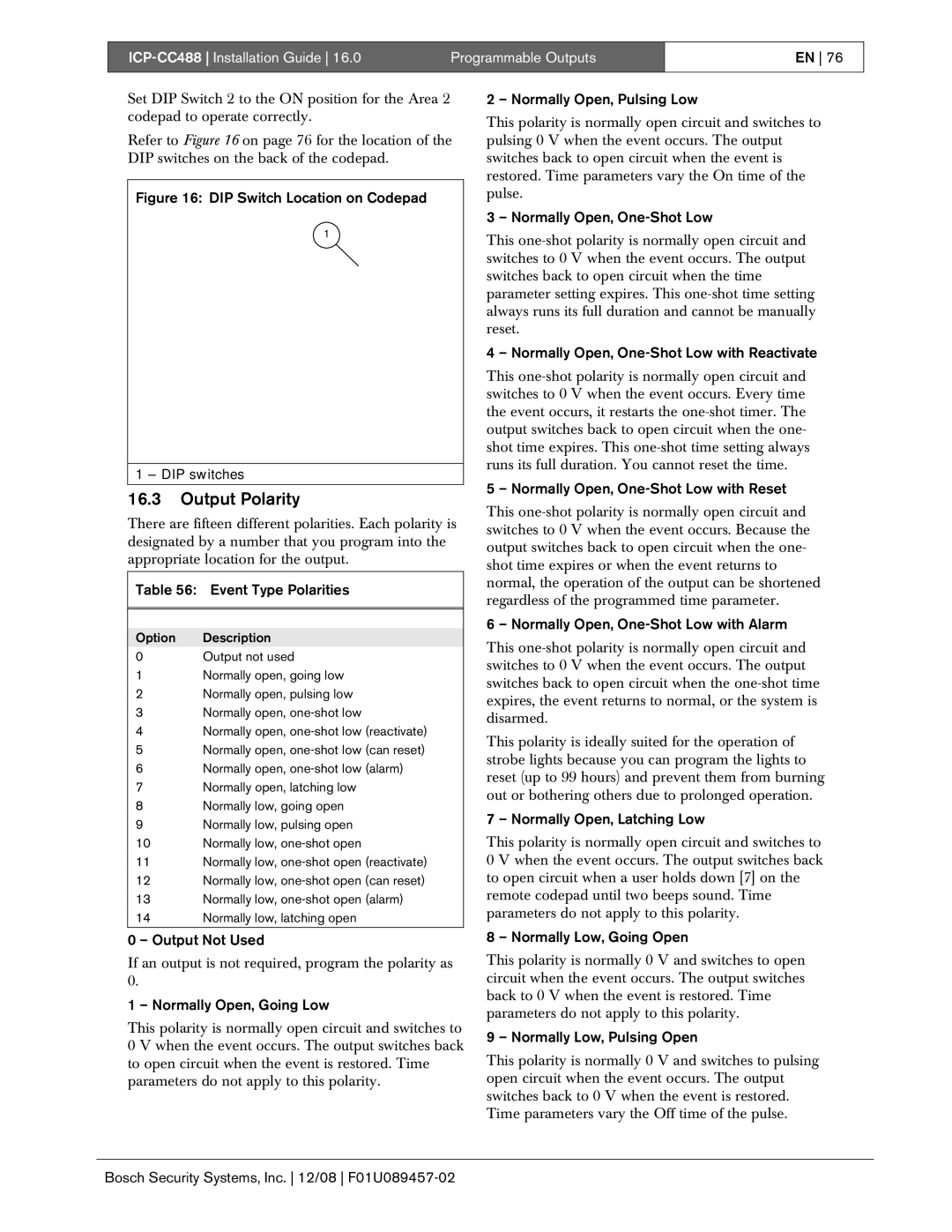
| Programmable Outputs |
|
|
EN 76
Set DIP Switch 2 to the ON position for the Area 2 codepad to operate correctly.
Refer to Figure 16 on page 76 for the location of the DIP switches on the back of the codepad.
Figure 16: DIP Switch Location on Codepad
1
1 – DIP switches
16.3Output Polarity
There are fifteen different polarities. Each polarity is designated by a number that you program into the appropriate location for the output.
Table 56: Event Type Polarities
Option Description
0Output not used
1Normally open, going low
2Normally open, pulsing low
3Normally open,
4Normally open,
5Normally open,
6Normally open,
7Normally open, latching low
8Normally low, going open
9Normally low, pulsing open
10Normally low,
11Normally low,
12Normally low,
13Normally low,
14Normally low, latching open
0 – Output Not Used
If an output is not required, program the polarity as 0.
1 – Normally Open, Going Low
This polarity is normally open circuit and switches to 0 V when the event occurs. The output switches back to open circuit when the event is restored. Time parameters do not apply to this polarity.
2 – Normally Open, Pulsing Low
This polarity is normally open circuit and switches to pulsing 0 V when the event occurs. The output switches back to open circuit when the event is restored. Time parameters vary the On time of the pulse.
3 – Normally Open, One-Shot Low
This
4 – Normally Open, One-Shot Low with Reactivate
This
5 – Normally Open, One-Shot Low with Reset
This
6 – Normally Open, One-Shot Low with Alarm
This
This polarity is ideally suited for the operation of strobe lights because you can program the lights to reset (up to 99 hours) and prevent them from burning out or bothering others due to prolonged operation.
7 – Normally Open, Latching Low
This polarity is normally open circuit and switches to 0 V when the event occurs. The output switches back to open circuit when a user holds down [7] on the remote codepad until two beeps sound. Time parameters do not apply to this polarity.
8 – Normally Low, Going Open
This polarity is normally 0 V and switches to open circuit when the event occurs. The output switches back to 0 V when the event is restored. Time parameters do not apply to this polarity.
9 – Normally Low, Pulsing Open
This polarity is normally 0 V and switches to pulsing open circuit when the event occurs. The output switches back to 0 V when the event is restored. Time parameters vary the Off time of the pulse.
